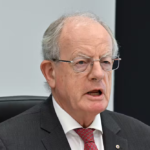
Arthur Sinodinos, Federal Minister of industry, Innovation and Science, highlighted the need for government, industry and the non-profit sector to collaborate to address barriers to growth for mid-sized firms at September’s GAP National Economic Summit.
He accepted that many mid-sized firms shrink rather than grow and, while every business cannot be expected to expand in a linear fashion, Australia must have more medium sized firms which can scale. Major corporates decide where jobs and economic activity are sited, promoting Australian governments to attract the regional headquarters of multinational firms to the country as this will influence their business decisions. Australian firms must compete off shore but should keep their base in this country and mining giants BHP and Rio are refocussing on Australia.
While the government wants to encourage mid-size firms to grow and offers a variety of support, its resources are inevitably limited. Within the reality of fixed budgets, every Industry Minister must choose between concentrating their efforts on a select group of companies or less intensive schemes offered to all. There are never enough funds to cater for every company and a balance must be struck between targeted investment and encouragement a business environment in which all enterprises can grow.
Education and training are vital for success but Australia must train its workforce in several dimensions. Young people must have the ‘soft skills’ of interpersonal communication as well as the STEM qualifications required to tackle the challenges of the 21st century. Automation will see machines subsume routine activities, leaving people to specialise in high level conceptual tasks. Australia’s education and training system must provide the right balance of skills and encourage young people to be risk takers and entrepreneurs. People should not be afraid to take a calculated gamble and our culture should change to forgive failure in pursuit of success.
Malcolm Turnbull notes that Israel’s chief scientist is willing to fund start-ups which falter as long as they learn from their mistakes, reframe their efforts and do better next time. Australia’s mid-sized firms will ‘crack through’ to success if their owners ‘have a go’ and keep trying in the face of setbacks. Such firms expand their operations, develop sustainable new markets and attract interest from larger foreign companies.
The Department of Industry does what it can to ease the barriers they face, including access to finance, skills and appropriate research. A positive macro-economic environment must be created as well, and the quality of regulation improved to ensure that standards are maintained but firms are not over burdened by red tape. The government must not shy from the issue of tax and the difficult argument that companies of all sizes should pay lower corporate taxes to encourage business activity, generating more skilled jobs and higher exports. Income tax must also be competitive to incentivise people. The government will not increase spending above 25% of GDP and boost tax rates to pay for it, instead it will restore a budget surplus as soon as possible to allow for further cuts in taxation.
Australia is competing against ‘killer economies’ in the Asia-Pacific and must learn from the ways in which Hong Kong and Singapore reinvent themselves over time and South Korea invests in education
The concept of ‘government as exemplar’ is one of the four pillars of the National Innovation and Science Agenda. This entails the use of government spending to drive innovation and science outcomes in Defence, ICT and other areas. The Digital Transformation Agency (DTA) is breaking up large ICT contracts to make it easier for SMEs to compete. The government wants SMEs to succeed and part of the help it can give is to offer itself as a customer.
The government is also ramping up infrastructure investment, which offers another major opportunity to encourage SMEs. There doesn’t have to be a cost premium or an increase in risks in using Australian SMEs and the Department of Industry is looking to increase their role in rail procurement and other areas.
While the days of traditional manufacturing in Australia are over, Australian mid-sized firms can succeed through ‘smart manufacturing’, using the internet of things and 3D printing to deliver bespoke quality rather than scale. Australia punches above its weight in terms of knowledge creation. Its challenge is to improve collaboration between mid-sized firms and government, academia and publicly funded research organisations to become more competitive. The programmes run by the Department of Industry increasingly focus on transition, rather than support for the status quo. They encourage companies to accept that change will occur, consider what they want to become and give them the tools they need to achieve it.
He looked forward to seeing detailed proposals for a ‘growth institute’ and how it might be used to complement government programmes. Mark Cully and his team are amassing comprehensive data on Australian industry which will be analysed to identify growth dynamics and inhibitors. This will allow the government to allocate its scarce resources in the most intelligent and effective way













